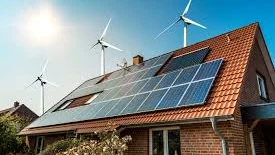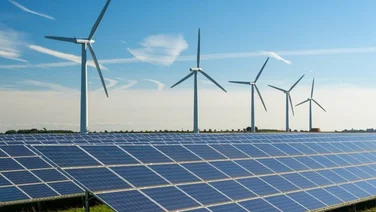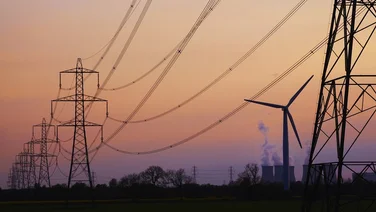- There are now more than 1.7 million total MCS certified installations in the UK
- In March 2025, more than a third of all certified solar PV installations were on new builds
- In the last quarter of 2024, more than four in 10 new homes included solar panels

The UK saw a record month for solar panel installations in March 2025, with more than 21,000 taking place, the highest since December 2015, according to the latest data from the MCS Data Dashboard.
Additionally, in the first quarter of 2025 the UK saw more with more than 57,000 certified installations, the highest since 2012 when the feed-in tariff regime was driving demand, in a sign that demand for renewable technology is booming.
This boom in solar panel installations has been attributed to the recent record for total solar generation in the UK, which generated 12.7GW of power on 6 April, beating the previous high that was set in the same week.
David Cowdrey, director of external affairs, the MCS Foundation, said the figures mean there are now more than 1.7 million total MCS-certified installations of solar panels, with the majority being installed on homes.
He added that the coming into effect of revised building regulations that require higher energy efficiency standards have helped drive the rise in solar panels.
“The UK’s solar boom is good news for the climate, for grid flexibility and for energy bills,” Cowdrey explained.
“As our research shows, the savings from solar panels become especially significant when combined with other household renewables, such as heat pumps and batteries. Together, these technologies are essential for getting homes off fossil fuels”.
Cowdrey said that if the government maximises solar panels on all new homes under the anticipated Future Homes Standard, which is due to be legislated this year, that could boost solar panel installations even further.
“Maximising the number of solar installed on rooftops under the Future Homes Standard and ensuring that installations are carried out to MCS standards would capitalise on rising consumer confidence in renewables and would be a very welcome step,” he said.
In the last quarter of 2024, more than four in 10 new homes included solar panels. In March 2025, more than a third of all certified solar PV installations were on new builds.
Gemma Grimes, director of policy and delivery, Solar Energy UK, added: “The newbuild sector is becoming more and more important as a driver for growth in smaller-scale solar energy installations.
“The sector accounted for more than a third of the market last month. Retrofitting panels to existing homes and other buildings remains the largest segment, showing that the public is increasingly confident in the benefits that solar technology brings to bills and the environment alike.”

Get free solar panel quotes
Answer a few quick questions, and our trusted installers will send you bespoke solar panel quotes – for free.
What does a solar boom mean for the National Grid?
Additionally, the National Grid Electricity System Operator (NESO) has published its 2025 Summer Outlook, which showed that it anticipated record-low electricity demand on the UK’s transmission network, potentially falling below 13.4GW.
The Outlook said the decline in demand is due to surges in solar power generation, with a new record of 12.68GW already set this spring, which also exceeds Britain’s total import capacity from European interconnectors.
There is an expected further decline in summer demand, mirroring Covid-19 levels.
NESO is confident that it can manage these new levels, thanks to its 2025 ambition to operate a zero-carbon network, as long as market conditions allow.
Since 2019, according to Dr Deborah Petterson, director of resilience and emergency management, NESO, the company has pioneered innovative pathfinder projects to deliver key stability services through low-carbon technologies, like battery storage, hydro, solar and wind.
“One of the great engineering challenges of decarbonisation is managing our system when there is low demand coinciding with higher levels of generation from renewable sources,” she said.
“To deliver our 2025 zero carbon ambition, we have made great progress re-engineering how we operate the national electricity network.
“These innovations will not only further increase the resilience of the UK’s national electricity network, but will also deliver economic benefits in balancing the system by improving the flexibility and competitiveness of running the electricity network at low demand”.







